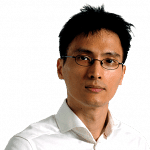Technology can help drivers find their cars in a carpark, make cyclists park their bikes responsibly, help parents track their children's expenses, and even identify sarcastic remarks posted online.
But as technology plays a bigger part in daily lives, a debate is brewing over whether Singapore should be more careful in picking the technology to adopt - with some experts warning that there are downsides to using tools to solve every problem.
Debates about overdependence on technology are perennial but it has assumed more relevance since Singapore's Smart Nation drive, launched in 2014, was highlighted again at Prime Minister Lee Hsien Loong's recent National Day Rally.
Experts warn that society needs to be constantly alive to the deep changes that technology can bring to its norms and values.
Take last month's launch of bike-sharing firm SG Bike, which is using "geofencing", a radio-based system, to compel cyclists to park in designated areas or risk fines.
But Dr Spela Mocnik, a sociologist at the Singapore University of Technology and Design's Lee Kuan Yew Centre for Innovative Cities (LKYCIC), said although the technology may help manage undesirable behaviour, it may not change the mindset that causes the behaviour.
"A sense of civic-mindedness has to do with attitudes towards others, which is perhaps better addressed through education at the formal and informal level," she added.
Drawing a similar dichotomy of views was another recent technology, Changi Airport's new Video- based Parking Guidance System (VPGS). About 1,000 video cameras are installed above parking spaces in the carparks of Terminals 1 to 3 to read licence-plate information that can help people find their cars.
On the pro side, Associate Professor Xavier Bresson, from Nanyang Technological University's School of Computer Science and Engineering, said the technology would probably benefit large carparks, noting that finding one's car wasn't a problem limited to Singapore.
He added that VPGS is an interesting application whose data can be mathematically analysed for developing other smart-city systems.
However, sociologist Tan Ern Ser of the National University of Singapore said it was important for people to "internalise" social values so that the use of smart devices would not make them careless, irresponsible and lazy.
LKYCIC researcher Corinne Ong noted that managers of other large carparks have used non-technological ways of solving the problem of drivers forgetting where they parked, such as colour zones and animal symbols, and research should be done to find out what works most effectively.
"Using technology for problem- solving is characteristic of advanced, global societies. Application of innovative technology has increasingly become a basis for assessing industry competitiveness," said Dr Ong. "But it is as important to ask 'is it necessary' and 'are there alternatives'."
The same issues also arise in a host of other innovations that are being adopted here. For example, the push towards a cashless society recently raised concerns that the poor might get left behind or that children might not learn the lessons that come with handling physical money.
Then there is the use of technology to process human language. A "sarcasm detector" called Crystalace is being developed at the Agency for Science, Technology and Research, a computer program that classifies sentences as sarcastic or not.
While some welcomed this as a step towards more sophisticated artificial intelligence, others say the software will never be accurate enough to be useful, given that sarcasm depends on context as well as tone of voice.
There are also concerns about the fragility of systems.
For example, recent reports have revealed that autonomous machines like robots and self-driving cars may be vulnerable to cyber attack, which could result in them being used to spy on or harm people.
However, technology has obvious benefits to humanity, and experts have suggested ways to make the best use of it.
Mr Teo Chin Hock, deputy chief executive of the Cyber Security Agency of Singapore, said technology developers should consider security at every stage of development and security measures should not be an afterthought.
Meanwhile, Dr Mocnik said technology should go hand in hand with social science in Singapore's Smart Nation drive, to ensure that "technology works for society and not the other way round".

